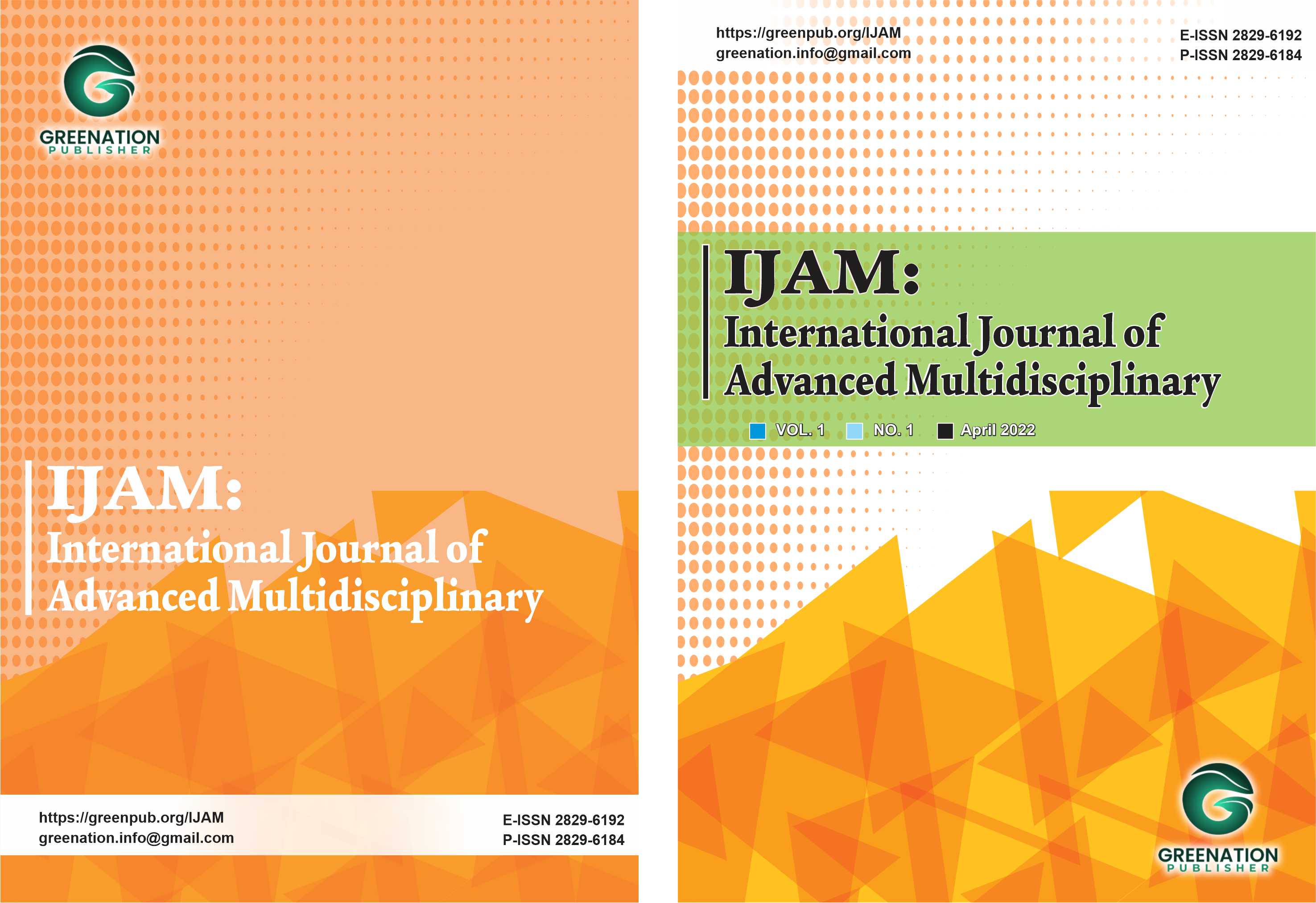Penta Helix Collaboration for Sustainable Tourism in Tutuala, Timor Leste
DOI:
https://doi.org/10.38035/ijam.v3i3.729Keywords:
Penta Helix, sustainable tourism, collaboration, Tutuala, Timor Leste.Abstract
Penta Helix collaboration is an important approach in developing sustainable tourism destinations, especially in areas where natural and cultural tourism potential is not yet optimal, such as Tutuala, Lautem, and Timor Leste Districts. This study aims to identify, analyze, and systematize literature related to the role of Penta Helix—which includes government, academics, business, communities, and media—in supporting sustainable tourism development in the region. Using the Systematic Literature Review (SLR) method, this article examines various previous studies to map cross-sector collaboration in increasing tourist attractions and their impacts on environmental, social, and economic sustainability. The results of the study show that the active involvement of each Penta Helix element is very influential in strengthening destination governance (Dredge & Jenkins, 2019; Yusran et al., 2020), expanding the tourism market (Sigala, 2020; Truong & Hall, 2021), and improving the quality of life of local communities (Goodwin, 2019; Cruz et al., 2021). However, challenges related to coordination between stakeholders and limited resources are still major obstacles in implementing this collaborative strategy (Jamal & Stronza, 2019). Therefore, stronger synergy efforts are needed, as well as the role of the media in promoting tourism potential and raising awareness of the importance of sustainability in tourism.
References
Butcher, J. (2020). Tourism Development Ethics. Tourism Management Perspectives, 34, 100694.
Carlsen, J., RW, & RW (2020). Application of the Penta Helix Model in Sustainable Tourism Development. Journal of Travel Research.
Cruz, R., et al. (2021). Green Tourism and Sustainable Development: Best Practices and Policy Implementation. Sustainability, 13(5), 2903.
Denyer, D., & Tranfield, D. (2009). Constructing a Systematic Review. In D. A. Buchanan & A. Bryman (Eds.), The SAGE Handbook of Organizational Research Methods (pp. 671–689). SAGE Publications.
Dodds, R., & Butler, R. (2019). Overtourism: Issues, Realities and Solutions. De Gruyter Oldenbourg.
Dredge, D., & Jenkins, J. (2019). Tourism Planning and Policy. Routledge.
Goodwin, H. (2019). Responsible Tourism: Using Tourism for Sustainable Development. Routledge.
Gough, D., Oliver, S., & Thomas, J. (2017). Introduction to Systematic Reviews (2nd ed.). SAGE Publications Ltd.
Hall, CM (2018). Tourism and Environmental Sustainability: Development, Globalization and New Tourism in the Third World. Journal of Sustainable Tourism, 26(2), 181–203.
Higgins, J. P. T., Thomas, J., Chandler, J., Cumpston, M., Li, T., Page, M. J., & Welch, V. A. (2020). Cochrane Handbook for Systematic Reviews of Interventions (2nd ed.). Wiley.
Khan, MS, TK, & MA (2020). Impact of Stakeholder Collaboration on Sustainable Tourism Development: A Review. Journal of Sustainable Tourism.
Kitchenham, B., & Charters, S. (2007). Guidelines for Conducting Systematic Literature Reviews in Software Engineering. Technical Report. Keele University and Durham University.
Martínez-Román, J.A., et al. (2022). Innovation and Business Sustainability: Ecotourism Practices in Tourism Business. Journal of Cleaner Production, 332, 130029.
Matenga, E., & Dai, J. (2019). Community-Based Tourism and Sustainable Development in Local Communities: A Comparative Study. Tourism Management, 76, 103947.
Munn, Z., Peters, M.D.J., Stern, C., Tufanaru, C., McArthur, A., & Aromataris, E. (2018). Systematic Review or Scoping Review? A Guide for Authors When Choosing a Systematic Review or Scoping Review Approach. BMC Medical Research Methodology, 18(1), 143.
Okoli, C., & Schabram, K. (2010). A Guide to Conducting Systematic Literature Reviews of Information Systems Research. Communications of the Association for Information Systems, 37(1), 6.
Petticrew, M., & Roberts, H. (2006). Systematic Reviews in the Social Sciences: A Practical Guide. Blackwell Publishing.
Snyder, H. (2019). Literature Review as a Research Methodology: An Overview and Guidelines. Journal of Business Research, 104, 333–339.
Stake, RE (1995). The Art of Case Study Research. SAGE Publications.
Tajeddini, K., Ratten, V., & Merkle, T. (2020). Tourism Entrepreneurship and Sustainable Regional Development. Tourism Planning & Development, 17(3), 207–223.
Thomas, J., & Harden, A. (2008). Methods for Thematic Synthesis of Qualitative Research in Systematic Reviews. BMC Medical Research Methodology, 8(1), 45.
Tranfield, D., Denyer, D., & Smart, P. (2003). Towards a Methodology for Developing Evidence-Based Management Knowledge through Systematic Reviews. British Journal of Management, 14(3), 207–222.
Xiao, Y., & Watson, M. (2019). A Guide to Conducting a Systematic Literature Review. Journal of Planning Education and Research, 39(1), 93–112.
Yin, RK (2018). Case Study Research and Applications: Design and Methods (6th ed.). SAGE Publications.
Yusran, Y., et al. (2020). The Role of Tourism Policy in Encouraging Sustainable Tourism Development. Tourism Management Perspective, 34, 100684.
Downloads
Published
How to Cite
Issue
Section
License
Copyright (c) 2024 Arlindo Do Ceo Fatima, Agung Winarno, Heri Pratikto

This work is licensed under a Creative Commons Attribution 4.0 International License.
Authors who publish their manuscripts in this journal agree to the following conditions:
- The copyright on each article belongs to the author(s).
- The author acknowledges that the International Journal of Advanced Multidisciplinary (IJAM) has the right to be the first to publish with a Creative Commons Attribution 4.0 International license (Attribution 4.0 International (CC BY 4.0).
- Authors can submit articles separately, arrange for the non-exclusive distribution of manuscripts that have been published in this journal into other versions (e.g., sent to the author's institutional repository, publication into books, etc.), by acknowledging that the manuscript has been published for the first time in the International Journal of Advanced Multidisciplinary (IJAM).






















